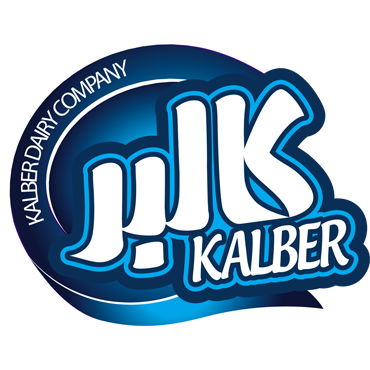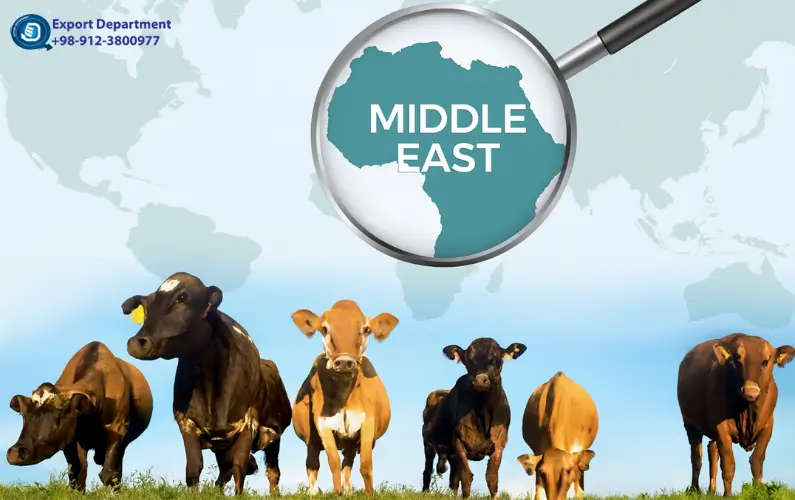Transforming Dairy Trade: The Role of Blockchain in Supply Chain Transparency
In recent years, the dairy industry has moved towards digitalization, focusing increasingly on transparent and efficient supply chains. Blockchain technology is at the forefront of these developments, enhancing traceability, strengthening quality assurance, and building trust in dairy supply chains. From farm to fork, blockchain provides powerful solutions to track, verify, and automate critical processes at every stage of the supply chain, addressing some of the industry's long-standing challenges.
What is blockchain?
Blockchain is an advanced technology that functions as a distributed and decentralized ledger, allowing information to be stored and transferred in a secure and transparent manner. This technology is widely used in fields such as digital currencies, supply chains, agriculture, and even in improving transparency within governments and organizations.
In blockchain, data is stored in digital blocks that are permanently linked to each other. Each block contains information that, once verified by the network, is connected to the previous block. This structure makes it nearly impossible to alter or manipulate data, as any change requires approval from the entire network.
Besides offering high security, blockchain is often more cost-effective than traditional systems and can improve efficiency across various industries. For example, in the agricultural sector, blockchain enhances transparency in the supply chain, giving consumers confidence that the products they buy come from authentic, high-quality sources.
Blockchain was first introduced in 2008 by an individual or group under the pseudonym Satoshi Nakamoto in the Bitcoin white paper.
With blockchain, information cannot be altered or manipulated, and all transactions are public and traceable, making it one of the most secure and reliable technologies in the digital world.
Blockchain's role in transforming agriculture and enhancing supply chain transparency
Blockchain can revolutionize the agricultural industry, especially in supply chain management and improving product transparency and security. One of the main applications of blockchain in agriculture is the tracking of products from origin to destination. This technology allows farmers, producers, and consumers to know exactly where agricultural products came from and under what conditions they arrived. This traceability can prevent product fraud and contamination and improve quality.
Blockchain can also make financial processes simpler and faster. By using smart contracts, payments are made automatically without the need for intermediaries. This enables farmers and producers to communicate directly with buyers or consumers, which reduces not only costs but also the time and complexity of business processes.
This technology can play an effective role in other processes such as financing and transportation. For example, farmers can use blockchain to receive loans or financial facilities directly from financial institutions, and the process of transporting products can also be improved through this technology.
Finally, as the adoption of blockchain in agriculture increases, the agricultural industry will be able to increase its productivity and efficiency and solve problems related to complex processes, financing, and transportation.
What are blockchain's uses?
Blockchain is an innovative technology designed to store and transfer data in a decentralized manner. In this system, globally distributed nodes confirm and record transactions using consensus algorithms, ensuring accuracy. Blockchain is applied across various fields, offering benefits like trust and transparency. Key uses include:
- International payments: Enables faster, cheaper money transfers without intermediaries.
- Gaming: Allows users to create and trade in-game items using NFTs.
- Logistics tracking: Provides precise tracking of products from origin to destination.
- Smart contracts: Automates secure contract execution.
- IoT Security: Ensures secure data exchange between devices.
- Authentication: Simplifies user verification and prevents identity theft.
- Electronic voting: Facilitates transparent, secure elections.
- Banking security: Prevents data theft and security threats.
- Social networks: Enhances profile security and message privacy.
Blockchain in the supply chain
Blockchain can enhance transparency in supply chains and address coordination challenges among stakeholders that arise with traditional methods. By using an immutable database, blockchain creates ecosystems that boost trust and efficiency in managing the distribution of goods from producer to consumer.
Digital Identity Creation
Blockchain enables secure management of digital identities for individuals and entities online, preventing personal data from being stored on centralized servers. This ensures secure and private storage of information.
Blockchain Uses in Industry
Here are some key uses of blockchain in various sectors:
-
Logistics: Blockchain tracks shipments and automates shipping processes via smart contracts, reducing paperwork, preventing data fraud, and enhancing coordination among shippers, customs, and other stakeholders.
-
Cross-border trade: Blockchain automates customs clearance and ensures regulatory compliance, simplifying procedures and streamlining cross-border payments.
-
Pharmaceutical industry: Blockchain helps combat counterfeit drugs, guarantees product authenticity, and enables tracking for packaging or labeling issues.
-
Food industry: Blockchain enhances food safety by tracking products from production to store, enabling rapid identification and recall in cases of contamination or issues.
-
Financial sector: Blockchain supports record-keeping and regulatory reporting in financial institutions. It securely stores and exchanges financial information in digital currencies, providing high security for transactions.

Blockchain in the Dairy Supply Chain
Increased Tracking and Transparency
Blockchain’s decentralized structure allows each step of the supply chain to be recorded as a permanent, immutable record in real-time. This innovation is crucial for the dairy industry, where each stage of production, from cow to consumer, must be tracked to ensure freshness and quality. For instance, dairy farms can use blockchain to document milk sources, transport conditions, and quality assurance measures. According to Cryptomus, blockchain's immutability feature helps confirm product authenticity and quality, allowing for quick identification and separation of low-quality or spoiled batches.
Quality Control and Smart Contracts
Blockchain enables automated processes through smart contracts, which enforce terms automatically between parties. In dairy, these contracts can enable payments only after quality inspections are completed at delivery points. This standardization reduces human error or fraud, enhancing consumer confidence in dairy products.
Automated Payments and Secure Financial Transactions
In traditional dairy transactions, multiple intermediaries lead to high costs and payment delays. Blockchain simplifies this by enabling direct, secure transactions. Smart contracts play a vital role: payments can be automatically triggered upon confirmation of quality or delivery standards. This accelerates payment cycles, benefiting farmers who often face delays in traditional systems.
Reducing Waste through IoT and Blockchain Integration
Due to the perishable nature of dairy, waste is a significant concern. Integrating blockchain with IoT sensors allows real-time monitoring of factors like temperature, humidity, and storage conditions. This data is recorded on the blockchain, enabling producers to address potential issues before products spoil. The Cryptomus case study demonstrates how blockchain-IoT systems increase transparency and significantly reduce waste.
Supporting Sustainable and Ethical Practices
Blockchain can help dairy brands document and verify sustainable practices, tracking environmentally-friendly farming methods and ethical animal treatment. Each step, from animal welfare to eco-friendly packaging, can be recorded, verified, and made transparent to consumers who prioritize ethical products.
Blockchain Implementation Challenges in the Dairy Industry
Blockchain implementation is not without its challenges. Many farmers lack the resources and knowledge to adopt this technology, and the high costs of implementation and integration with existing systems remain significant barriers. However, as Cryptomus has demonstrated in its review of blockchain applications in supply chains, the long-term cost reductions and operational improvements are making blockchain adoption in agriculture and dairy increasingly feasible.
Blockchain in the Dairy Trade
In the dairy business, transparency in the supply chain is one of the biggest challenges. From milk production to consumer consumption, every step must be carefully monitored to ensure products reach consumers with the highest quality and free from fraud. In this context, blockchain technology is emerging as a revolutionary solution. By providing an immutable record of all production and distribution stages, blockchain enables accurate tracking of products from farm to table. This technology is particularly crucial in industries where product quality and authenticity are paramount, such as dairy.
This shift in the dairy industry not only enhances consumer trust but also allows producers to automate processes more efficiently and avoid the delays common in traditional systems.
Conclusion
Blockchain technology is a game-changing solution for the dairy industry, offering unprecedented transparency, security, and efficiency in the supply chain. By managing quality control, automating payments, and ensuring authenticity, blockchain builds trust between consumers and stakeholders. While the journey to full adoption may require adjustments, the benefits of blockchain in creating a reliable, sustainable, and customer-centric dairy industry are invaluable.
As blockchain technology matures and becomes more accessible, it is reshaping the global dairy business landscape, helping producers meet the demand for transparency while building a more sustainable future for the industry.
Read More: Understanding Organic Dairy and How It Differs from Conventional Dairy

-min(1).webp)

 (2).webp)
.webp)